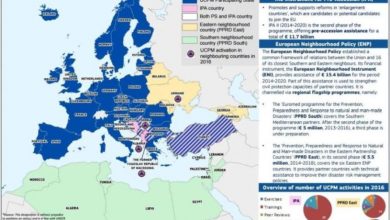Engine for Europe
The ratification by the deputies of the European Parliament of the EU Lisbon Agreement does not at all turn the union of independent states into a single state entity. On the contrary, it is able to modernize the European Union, giving it greater dynamism and flexibility. This is the point of view of one of the co-rapporteurs on the issue of the Agreement on the European Union, which is part of the group of people’s parties of the Spanish European Parliament, Inigo Mendez de Vigo.
For most of its history — the first thirty years — the EU has been a predominantly economic structure. It took more than three decades to understand: European unity is not only, and not so much the economy. But common democratic values shared by the countries of the union. It is their presence, according to I. Mendez de Vigo, that allowed Europeans to understand each other – and to transform Europe, which was repeatedly redrawn before that by wars, literally beyond recognition. And, most surprisingly, in an absolutely peaceful way.
We are waiting for changes
“If we had a time machine – albeit not as powerful as Herbert Wells described, but capable of moving in history for at least half a century – and we could have“ transported ”the first ideologists, or rather visionary visionaries of a united Europe, William Churchill, for example, or Robert Schumann, in the modern building of the European Parliament, they most likely would simply not believe their eyes, ”the politician fantasizes.
“Yes, and if you look at a closer historical perspective – could we, the inhabitants of the Western world, imagine twenty years ago that in a united Europe there would be countries that were not just at that time on the opposite side of the Iron Curtain, but even moreover, being non-independent parts of the communist state? ”he asks.
The democratic spirit, to one degree or another characteristic of all European states, permeates, according to I. Mendez de Vigo, and the Lisbon Agreement. The report presented to his colleagues in the European Parliament noted that the Lisbon Agreement assigns a major role to the European and national parliaments in the decision-making process and, thus, strengthens democracy. Thus, the European Parliament receives equal rights with the Council of the EU when making decisions regarding the budget, in the field of justice and internal affairs. In addition, the President of the European Parliament, proposed by the European Council on the basis of the results of European elections, will be elected by the European Parliament. The document notes that the new agreement enhances the effectiveness of the European Union due to the fact that henceforth more decisions will be made with the support of a qualified majority, and not by consensus, as it was before.
House on wheels
The European Union is sometimes compared with a house originally designed for six families, in which all twenty-seven have now settled, and its founding documents – the Roman and Maastricht Accords – are called the internal routine of this dwelling. I. Mendez de Vigo finds such a comparison not too accurate. “The current European Union is, rather, an assembly machine in the mid-fifties of the last century,” he draws an analogy. – From one point to another on it, of course, you can get safely. Another thing is that fuel consumption will be high, speed – on the contrary, and in the event of a breakdown – it is difficult to find the necessary replacement part in the car service.
“The EU after ratification of the Lisbon Agreement is a modern car: economical, environmentally friendly, equipped with satellite navigation system and on-board computer,” he continues. – Those who are trying to say that the document ratified on February 20 is capable of turning the EU into a kind of superstate are deeply wrong: they are trying to present the case as if we are changing from a car to a train where there is one leading locomotive pulling “passive” cars . The situation, however, is the other way around – the new agreement strengthens the effectiveness of the European Union due to the fact that from now on more decisions will be made with the support of a qualified majority, and not by consensus, as it was before.
The draft report on the new EU Agreement was approved by the Committee on Constitutional Affairs of the on January 23 this year. On December 13, 2007, leaders of 27 EU member states signed a new EU agreement in Lisbon. It is envisaged that the agreement must be ratified by the parliaments of the EU member states by 2009. To date, the agreement has been ratified by 5 EU member states: Hungary, Slovenia, Malta, Romania and France. 525 deputies voted for approval of the report of I. Mendez de Vigo and Richard Corbett (group of socialist parties, Great Britain), 115 against, 115 abstained.
This post is also available in:
 English
English  Русский (Russian)
Русский (Russian)





